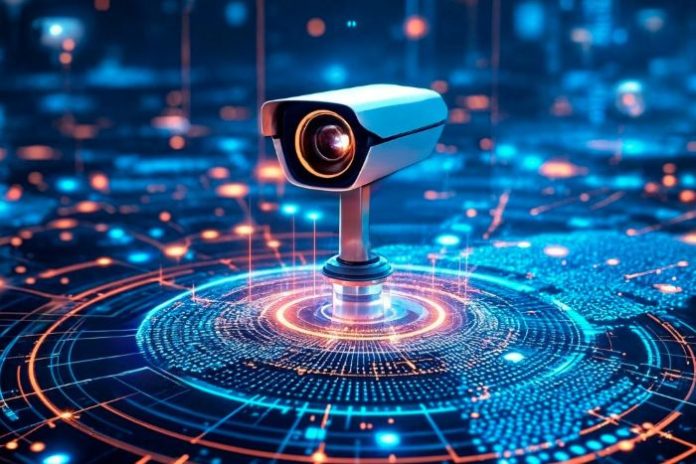Artificial intelligence is reshaping industries worldwide, and security systems are no exception. With advancements in AI technology, modern security systems are becoming more intelligent and effective. This transformation is not just about innovation but also about enhancing safety and efficiency in surveillance.
The integration of artificial intelligence into security systems marks a significant shift in how surveillance is conducted. By enabling machines to learn from data, AI enhances the capabilities of traditional security systems. This transformation allows for more precise monitoring and faster response times, providing an added layer of protection for both residential and commercial spaces.
Key Takeaways
- AI is transforming modern security systems, making them more intelligent and efficient.
- New features like facial recognition and anomaly detection enhance surveillance capabilities.
- AI significantly improves response times, allowing quicker notifications and automatic responses to threats.
- Challenges include privacy concerns and technological limitations that need careful consideration.
- The future of AI in modern security promises advancements in threat detection and seamless integration with smart technologies.
Table of Contents
AI Integration Brings New Capabilities to Modern Security Technology
AI’s integration into security technology has introduced new features that redefine surveillance. Facial recognition allows systems to identify individuals in real-time, offering a substantial advantage over traditional methods. Airports use AI to streamline passenger identification, enhancing both security and efficiency. Additionally, AI-powered anomaly detection can identify unusual activities by analyzing patterns and behaviors captured by cameras, such as spotting unattended bags in crowded places.
These advancements mean that security systems are no longer passive observers but active participants in threat detection. You can now rely on these systems to alert you immediately when something out of the ordinary occurs. This proactive approach ensures that potential threats are addressed promptly, minimizing risks and improving safety standards across different environments.
Exploring The Benefits Of AI-Enhanced Security Systems
The benefits of incorporating AI into security systems are numerous, significantly boosting their efficiency and effectiveness. One key advantage is the ability to process vast amounts of data quickly and accurately. This capability allows for smarter surveillance, where AI algorithms can sift through hours of footage to pinpoint critical events without human intervention. In retail settings, AI can help identify shoplifting incidents by recognizing suspicious behavior patterns.
Another benefit lies in the enhanced response times that AI offers. When a potential threat is detected, these systems can immediately notify security personnel or even initiate automated responses such as locking doors or sounding alarms. This rapid action is crucial in preventing incidents from escalating and ensuring a swift resolution to potential threats. Consider a scenario where an AI system detects a fire outbreak and automatically triggers the fire suppression system while alerting emergency services.
A reliable 4 camera security system now benefits from advanced features like facial recognition, making them more efficient in identifying potential threats.
Challenges And Considerations with Implementing AI
Despite the clear advantages, integrating AI into modern security systems presents challenges that must be addressed. Privacy concerns are at the forefront, as the use of facial recognition and data analysis raises questions about how personal information is managed and protected. Balancing these concerns with technological innovation requires careful consideration and robust ethical frameworks. Implementing clear data usage policies and ensuring transparency in data collection can help address these concerns.
Moreover, technological limitations can pose significant hurdles. Not all environments are suitable for advanced AI technologies due to infrastructure constraints or budget limitations. Thus, when considering implementing these systems, it is essential to assess their feasibility within specific contexts carefully. Rural areas with limited internet connectivity might face challenges in deploying cloud-based AI solutions.
Future Prospects For AI-Driven Modern Security Technologies
The future of AI in security systems promises continued evolution with emerging trends focusing on deeper learning algorithms and improved sensor technologies. These advancements could lead to even more sophisticated threat detection capabilities and seamless integration with other smart technologies within homes and businesses. Imagine a future where AI systems can predict security threats before they occur by analyzing global data trends.
Looking ahead, you can anticipate a landscape where AI-driven security measures become standard practice rather than cutting-edge innovations. As the technology matures, it will likely provide increasingly comprehensive solutions that address current limitations while enhancing overall safety and operational efficiency. The integration of AI in modern security systems is not just a trend but a transformative shift that promises to redefine how we perceive and manage security in the years to come.











